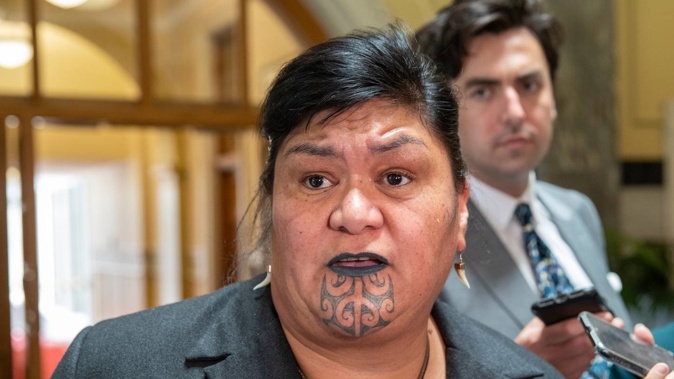
Foreign Minister Nanaia Mahuta has likened New Zealand's relationship with China to the respect a taniwha would have for a dragon, and vice versa.
It was her first speech on New Zealand's relationship with China since becoming Foreign Minister in November.
It a period in which the Government has been dogged with criticism by Australian commentators for being too soft on China, mainly for not signing up to all of the joint statements criticising it over issues involving Hong Kong, the Uighur people, or for not being as critical as Australia over Covid-19.
New Zealand variously issues its own statements, issues joint ones with Australia or issues ones with the other countries in the Five Eyes intelligence alliance, the United States, Britain, Canada and Australia.
Mahuta drew on metaphors heavily to described New Zealand's contemporary relationship with China.
"When I think about this relationship … I liken it to the respect a taniwha would have for a dragon and vice versa," she told the NZ China Council in Wellington.
"Taniwha are endemic to Aotearoa but can trace their whakapapa across the vast expanse of the Pacific Ocean – Te Moana nui a Kiwa. Taniwha are protectors or guardians, often of water, and hold dominion over rivers, seas, lands and territories.
"Deeply steeped in culture, they are spiritual and one with nature. They symbolise a sense of guardianship for our people and our land and a strong belief in self.
"And like the dragon, they are powerful, auspicious, and embedded in our epistemology. They have many forms, and are a symbol of leadership, prestige and strength, and are to be revered.
"We are two peoples - with characteristics and symbolism unique to our respective countries.
"I see the taniwha and the dragon as symbols of the strength of our particular customs, traditions and values, that aren't always the same, but need to be maintained and respected.
"And on that virtue we have together developed the mature relationship we have today."
She said the willingness of the dragon and the taniwha to engage and have regard for one another was not simply a matter of economic convenience, competition or prowess.
"The taniwha, like the dragon, has the ability to understand the essence of its environment and changing conditions – as well as the ability to adapt and survive.
"After all, as custodians and kaitiaki, taniwha are intrinsically linked to the wellbeing and resilience of people, the environment and the prosperity from which all things flourish."
She said that was the perspective that she brought to New Zealand's relationship with China – "an intention that New Zealand is respectful, predictable and consistent in the way we seek to engage in the pursuit of our long-standing and deeply held values and interests."
There were still things on which New Zealand and China would not agree, Mahuta said.
On many occasions New Zealand had raised issues privately with China.
"Where there is tensions between the dragon and the taniwha, we take a consistent and predictable approach, through diplomacy and dialogue."
Sometimes New Zealand would find it necessary to speak out publicly on issues, as it had over developments in Hong Kong, the treatment of Uighur in Xinjiang and over cyber incidents.
"At times we will do this in association with others that share our views and sometimes we will act alone. In each case we make our decisions independently, informed by our values and our own assessment of New Zealand's interests."
Take your Radio, Podcasts and Music with you









